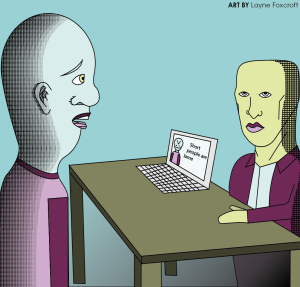Political Point of View: Biden has pardoned thousands of Americans convicted of simple marijuana possession
Unfortunately, it didn’t do as much as we hoped.
November 21, 2022
President Joe Biden recently set forth one of the largest acts of clemency seen in years. In a speech at the White House on October 6, he announced an executive plan to pardon thousands of Americans convicted of federal marijuana possession, even calling on state leaders to follow his example, in hopes of erasing the records of state offenders, as well.
While Biden’s push for pardons is a step in the right direction, I believe it’s ineffective. The majority of those arrested for possession are found at the local and state levels, meaning the president doesn’t have the power to pardon them, and all he can do is pave the way for states to begin vacating convictions.
Many states had already begun action to clear minor marijuana charges before Biden’s announcement, although it takes years to properly clear records. His action is therefore not entirely unforeseen, but with his announcement in mind, all we can hope is that this executive action will make the process more efficient.
For many, a pardon is the first step needed to get their records erased, meaning that thousands of Americans, most of whom are minorities, will have a chance to get their records wiped of past marijuana charges, removing the barriers blocking their access to education, jobs, and housing, all markets which typically frown on previously convicted felons.
More importantly, Biden noted during his speech that he will push to have marijuana further researched, aiming to discover enough about it to change its label as a Schedule I drug. Currently, as a Schedule I drug, marijuana is categorized as highly addictive, considered on the same level as Heroin and LSD. Changing its scheduling is difficult, but not impossible. If rescheduled to Substance II or III, its ability to be used for medical purposes will broaden significantly, and doctors might have the ability to prescribe their patients medical marijuana, and dispensaries for such products will become more accessible to Americans.
To me, Biden’s push for change symbolizes the struggle to balance science with criminal justice reform efforts. The majority of those who have been affected by the criminalization of marijuana are minority individuals, despite the fact that white Americans use marijuana at the same rate. Actions like Biden’s create more opportunities and second chances for a large number of minority Americans; however, it is important that we remember that immigrants and non-U.S. citizens are generally left out of these efforts, and are often forgotten by reformist groups, even though they make up the largest portion of those convicted of marijuana possession at state, local, and the federal level.
While President Biden’s executive order doesn’t do much for the majority of those convicted, who were arrested at the state and local levels, it is a step in the right direction. It is important to recognize the precedent this sets for future efforts for decriminalization, especially if this manages to change marijuana’s substance classification.
Overall, I see Biden’s pardon as a possible path to medical marijuana legalization, as well as a means for future decriminalization of the drug. Hopefully this is an issue that the democratic party will continue to pursue. Even though this isn’t the exact change I would like to see, I understand the steps that President Biden is taking in order to create a bigger movement.









